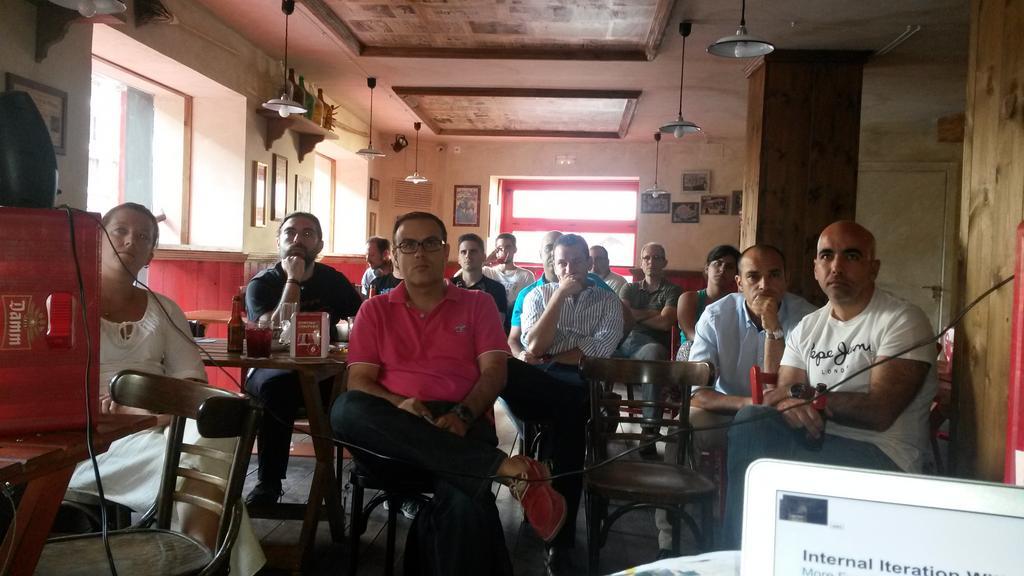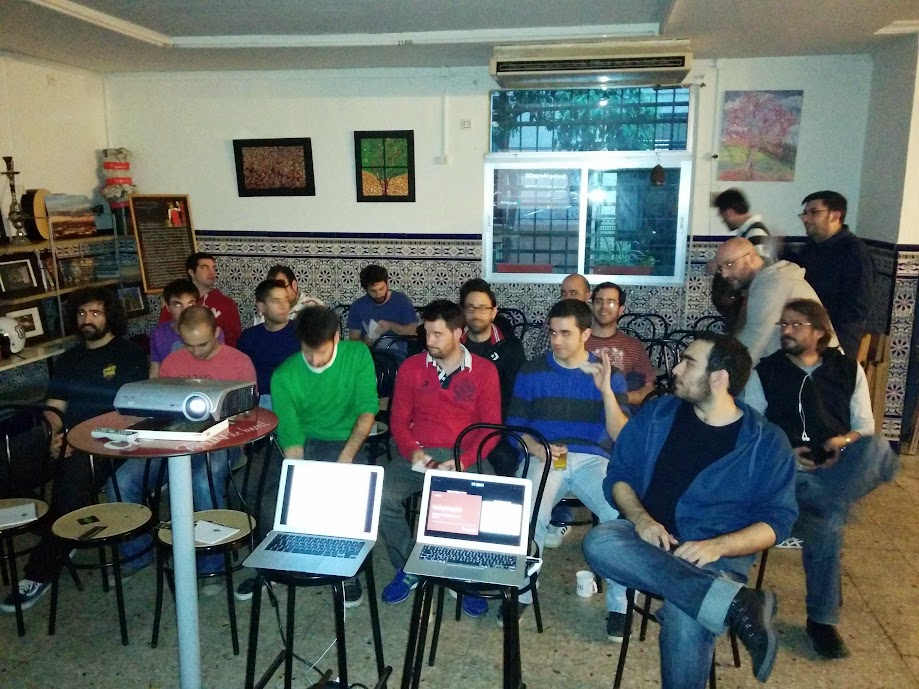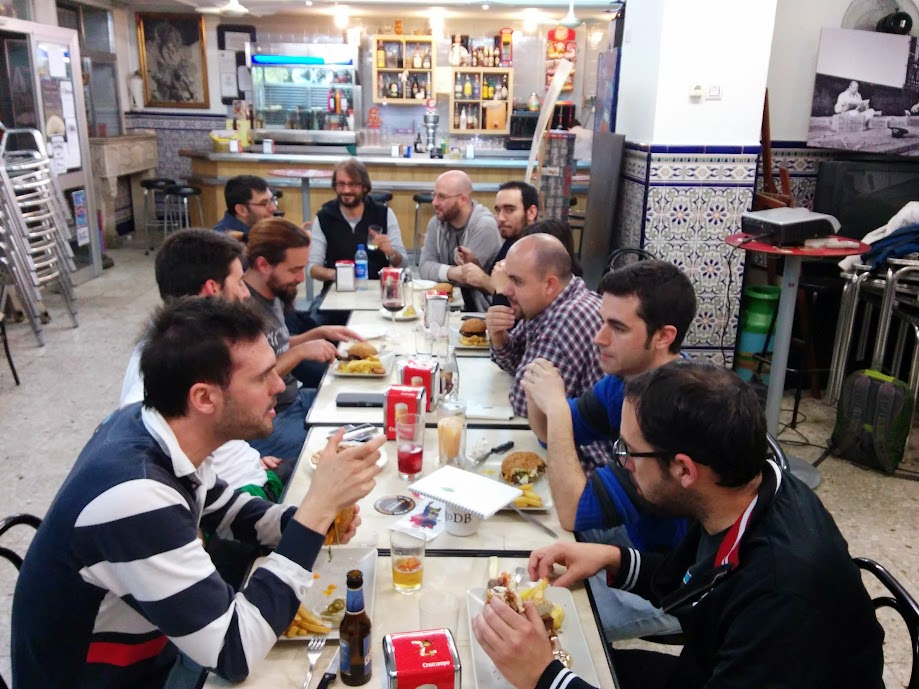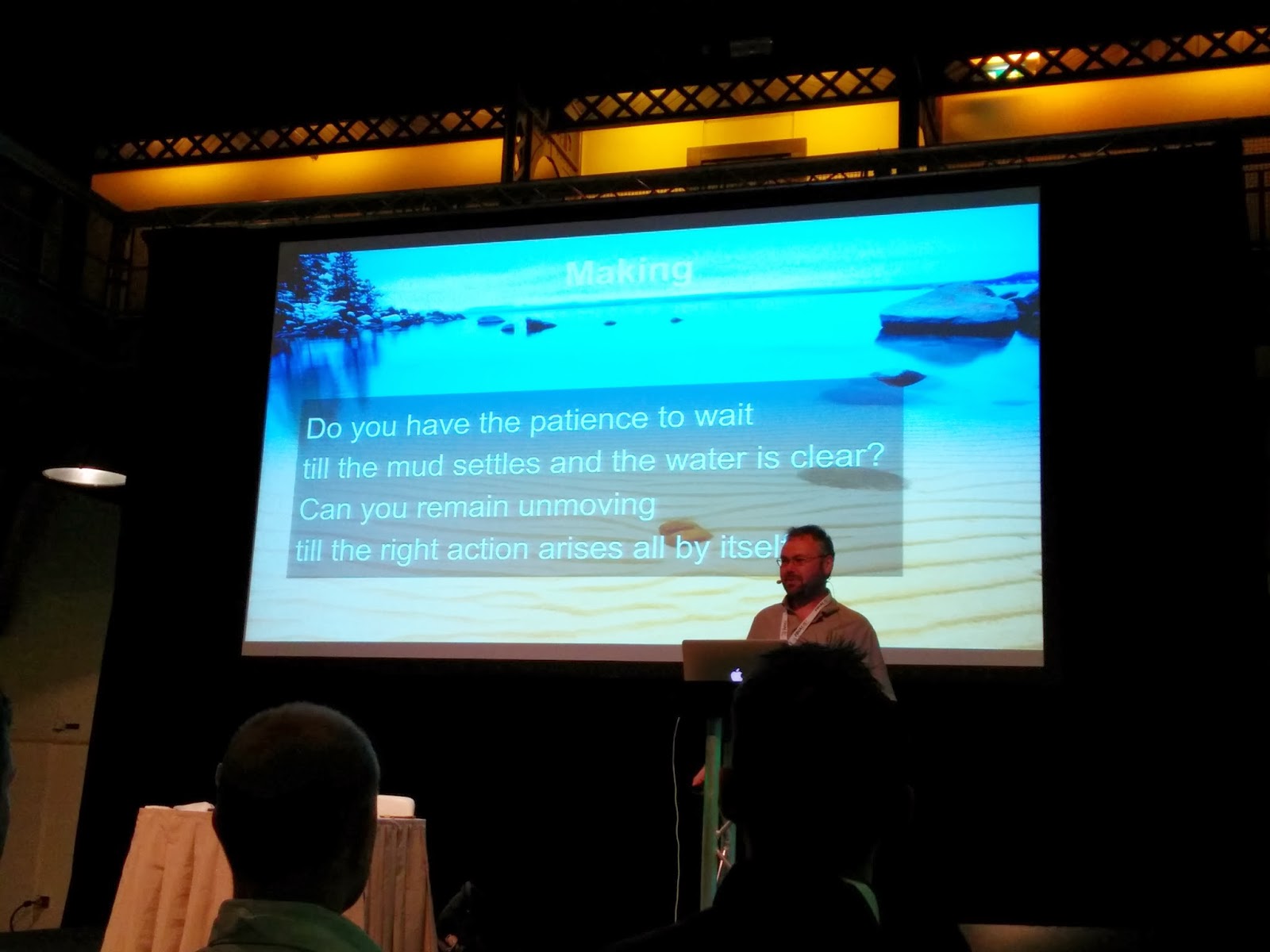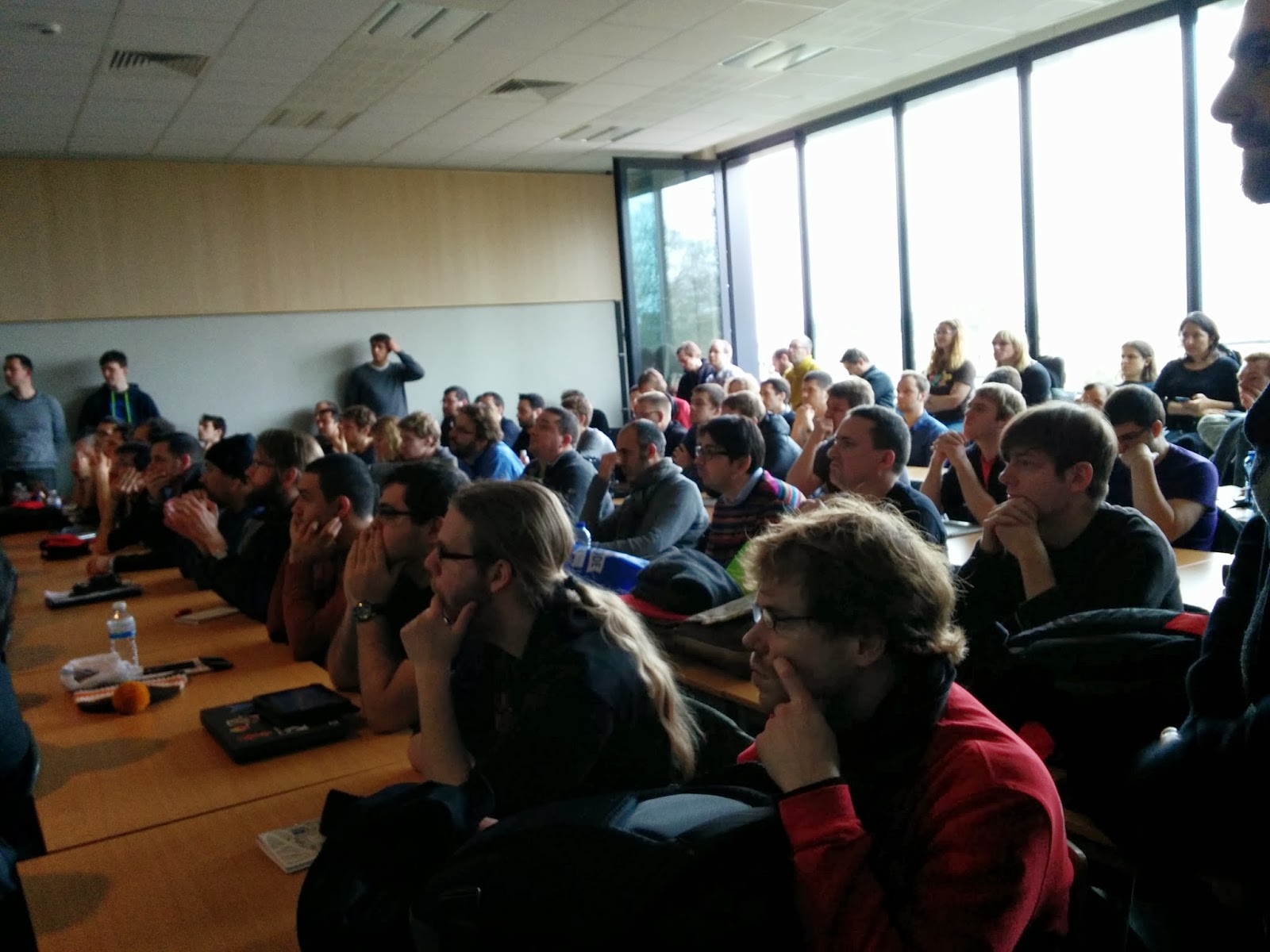Wow. My 4th QCon London. That’s not bad. And every time, it’s a different experience (if you must, see my blogs for 2013, 2012, and even 2007 (part 1 & part 2 - how cute was I? "agile seems like a jolly good idea; automated testing appears to be important")).
I can’t even tell you what I did on the first day, I was mostly panicking about my presentation - I was inspired after my trip to New York last month to change my talk at the last (responsible?) minute and do a live coding session, something much more technical than my recent talks. I’ll leave the details for a separate blog post though, when the video comes out.
The thing that stands out for me from Wednesday though was Damian Conway programming Conway's Game of Life in Klingon. Yeah. Just find the video and watch it, the man is a genius.
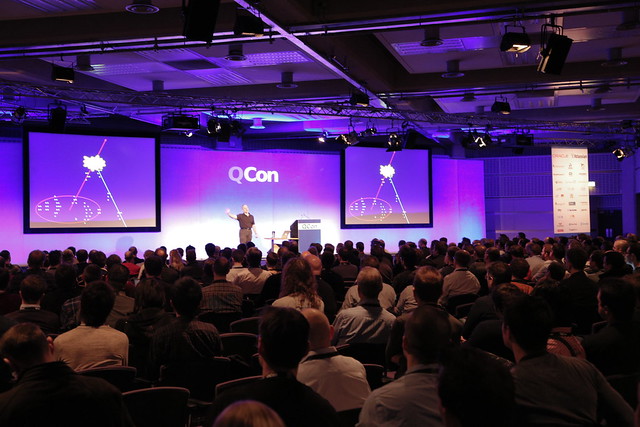
The Thursday keynote was inspiring too from a totally different point of view - Tim Lister of Peopleware fame shared stories from his career, and I came away from that really happy I work as a technologist, but with an increased desire to learn off other amazing people.

Not Only Java track - I’m on the programme committee for QCon, and this year we wanted to cover leading edge technologies (as always) but we didn’t want to slice things into strict technology silos (interruption: argh! the person in front of me nearly destroyed my laptop by suddenly moving their chair back! Why do people bother in economy on a morning flight?). So I wanted the Java track to be more representative of what today’s Java programmers care about - for the programmers of course, but also because I know there are architects and team leads at QCon who might not realise how things have moved on with the language, and how much polyglot programming we do these days.
Martin kicked it off with a great history lesson on the progress (or occasionally, lack of it) in Java. He begged us to study and understand Set Theory, to use async design, to think of the users of our APIs, and, most of all, to design nice, clean code.
Next up, Eva took us through the fundamentals of Garbage Collection - this might not seem like a cutting edge subject these days, but it’s one of the most misunderstood subjects for Java programmers. Eva gave us a really great, understandable view of the different types of garbage collectors, how they work, and their pros and cons. She left us with a call to arms to not simply let other people try and solve this problem, but to get stuck in and contribute ourselves, via the OpenJDK.
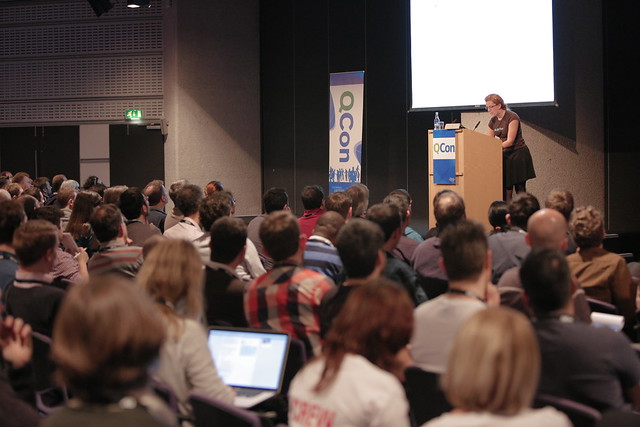
After lunch was my nerve-wracking live coding session, putting together a full stack end-to-end web app using AngularJS, HTML5, Java and MongoDB. It only went wrong twice, and people seemed to like it. I’ll post the video in another blog post as soon as it's publicly available. Code is available on github.
We’ve been playing with the open spaces idea at QCon. The Java one only had a few people in it, but that gave everyone a chance to speak at least. We covered Java 8 (the Good and the Bad); other JVM languages; and UIs for Java (Javascript or GWT?). And I plugged the work the LJC does in London, of course.
After this Bodil blew me away creating a My Little Pony game using RX in the browser. ‘Nuff said.
Finally, Simon Ritter gave us a view of the Java 8 features most likely to impact the way Java developers think about software design - lambdas and streams. I thought this was a really great introduction to the concepts if you haven’t seen them before, and with concrete examples that showed how we should be using them. If you're not already looking at lambdas and streams, you should be - even if you're not going to be using Java 8 yet, it's worth getting a heads up on how it's going to impact our programming style.
I’m very pleased with the way the Java track turned out on the day - every speaker was first class, a wide range of topics was covered, and I, for one, learnt something in every presentation.
To finish off the day, Emma Langman gave an awesome keynote about how people are the messy bit of your system, and how they’re never rational and you shouldn’t expect them to be. I also highly recommend this talk, especially if you’re a techy and you’ve found yourself in some sort of management or team lead position.
Sadly I couldn't stay for day three of the conference, I had to fly off to the Joy of Coding to re-give the live coding presentation there. Because, if you’re going to do something terrifying and doomed to failure, you might as well do it twice.
QCon is an expensive conference, especially compared to the developer-friendly prices of something like DevoxxUK, but for getting a big picture of where the industry is, of things you might be missing, for learning hard core technical skills and understanding the important of the fluffy-people-stuff, and finally for meeting a wide range of people from developers to CTOs, I think you'd be hard pushed to find something better in London. IMHO (and remember, I did disclose I'm on the programme committee).
And although it's really hard work putting together the programme for a track like this, and although both times I've said I'm Never Doing It Again, when it goes this well it makes you want to do it all over again. After a break. A looong break.
